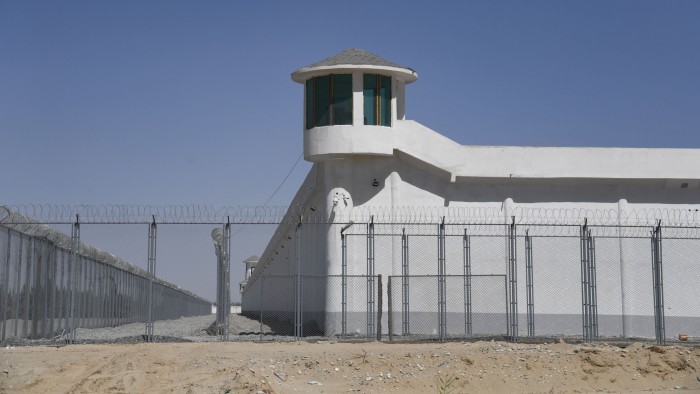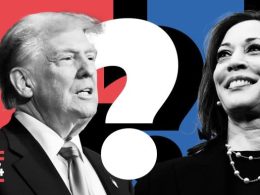New regulations on human rights are forcing global companies to address concerns about modern slavery and tackle problems in their supply chains.
In Europe, a landmark human rights rule was adopted by the EU in July 2024. The Corporate Sustainability Due Diligence Directive (CSDDD) requires European companies — and some businesses abroad but with significant turnover in the EU — to identify and prevent possible human rights abuses. This applies to product manufacturing supply, raw materials, and other aspects of companies’ supply chains.
The CSDDD builds on human rights due diligence legislation that is already in force in France, Germany, and the Netherlands. And, although the CSDDD does not come into effect more widely until 2027, big global companies in the UK, US and elsewhere have added language to their regulatory filings warning investors about the looming regulation.
The law has been hailed by activists as one of the most significant advances in years. It “should send a message to all companies everywhere that they must respect human rights”, Amnesty International said this year. The rule also addresses the concerns of some large Dutch pension funds that have raised the alarm about slavery in corporate supply chains.
As a result, the CSDDD will become an important issue for investors, because companies that fail to take modern slavery seriously will face increasing legal risks, according to the Minderoo Foundation, an Australian philanthropic organisation. “Investors play a crucial role in driving ethical business practices and ensuring companies respect human rights in their operations,” Minderoo said in an October report.
Europe’s new rule joins the US’s 2021 Uyghur Forced Labor Prevention Act. While the CSDDD applies globally, the US law targets allegations of forced labour in the Xinjiang region of China, home to the Muslim Uyghur people. Imported Xinjiang goods are prohibited, although there can be exceptions. Up to June 2024, the Uyghur US Customs and Border Protection had stopped more than 4,000 shipments of goods valued at more than $3.6bn for enforcement review, according to the agency.
These US regulations are already posing problems for businesses and investors. In May, the US Senate published a report alleging that BMW and Jaguar Land Rover cars and components imported to the US included a part made by a company linked to Uyghur forced labour. The senators had investigated eight carmakers to find out if their supply chains included one component made using forced labour from China’s north-western Xinjiang region.
BMW was found to have imported about 8,000 Mini Cooper cars containing components made by a Chinese company that had been put on the US forced-labour ban list. The report also noted that JLR continued to import components even after being informed. Both companies said they were taking action to fix their compliance issues.
While these EU and US laws are new, human rights due diligence regulations have a long history. The 2010 Dodd-Frank law to reform Wall Street forced thousands of companies to identify any “conflict minerals” from the Democratic Republic of Congo and nearby countries.
Earlier efforts to shed light on human rights concerns in the minerals industry had included the Kimberley Process — a global effort started in 2003 to increase transparency in the diamond supply chain after diamonds were used to fund a series of brutal civil wars in Africa in the 1990s.
With the CSDDD still a few years from coming into force, “many [companies] are paying no attention to the new rules”, says David Birchall, a senior lecturer at Macquarie University in Australia. But others are already on their way towards compliance thanks to local laws, he adds. Volkswagen, for example, has staffers to ensure it complies with the German human rights due diligence law.
“The key thing for multinationals is to know which laws they are covered by, as well as to begin preparing for the broader and often more stringent CSDDD,” Birchall says. “For US firms, this depends on where they do business, their sector, [and] their size,” he adds. “It is complicated.”
It is so far unclear whether Donald Trump’s incoming administration might try to exempt US companies from CSDDD or other European human rights requirements. The president-elect did, however, support the Uyghurs in his first term. His administration banned exports to some Chinese companies involved in surveillance of the Muslim minority and imposed visa restrictions on officials implicated in detentions.
Republicans, who will have control of Congress and the Senate, have overwhelmingly supported tough legislation to combat the mass detention of Uyghurs and demonstrated a willingness to pressure Trump to take action.
“Certainly, the Uyghur forced labour prevention act had bipartisan support before,” says Rachel Chambers, a professor at the University of Connecticut. “The Chinese, of course, view laws like this as geopolitically motivated.”
But other aspects of human rights law might not be safe under the new administration, Chambers says.
Trump was eager to nullify an important anti-corruption law legally challenged by the American Petroleum Institute. Section 1504 of the Dodd-Frank act was designed to stop the extractive industry from making secret payments to the often autocratic regimes that control oil, gas and minerals. Days into his presidential term in 2017, Trump stopped the rule before it could take effect.
In Europe, the CSDDD has still to be adopted as law by member countries, meaning there is also a risk the directive might get stuck before it goes into effect.
Chambers notes: “In terms of global trends, the rise of the right in Europe is more likely to affect how the [CSDDD] law is transposed into EU member state law and whether it is enforced.”
Source link









